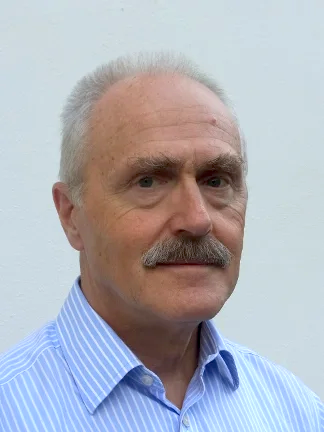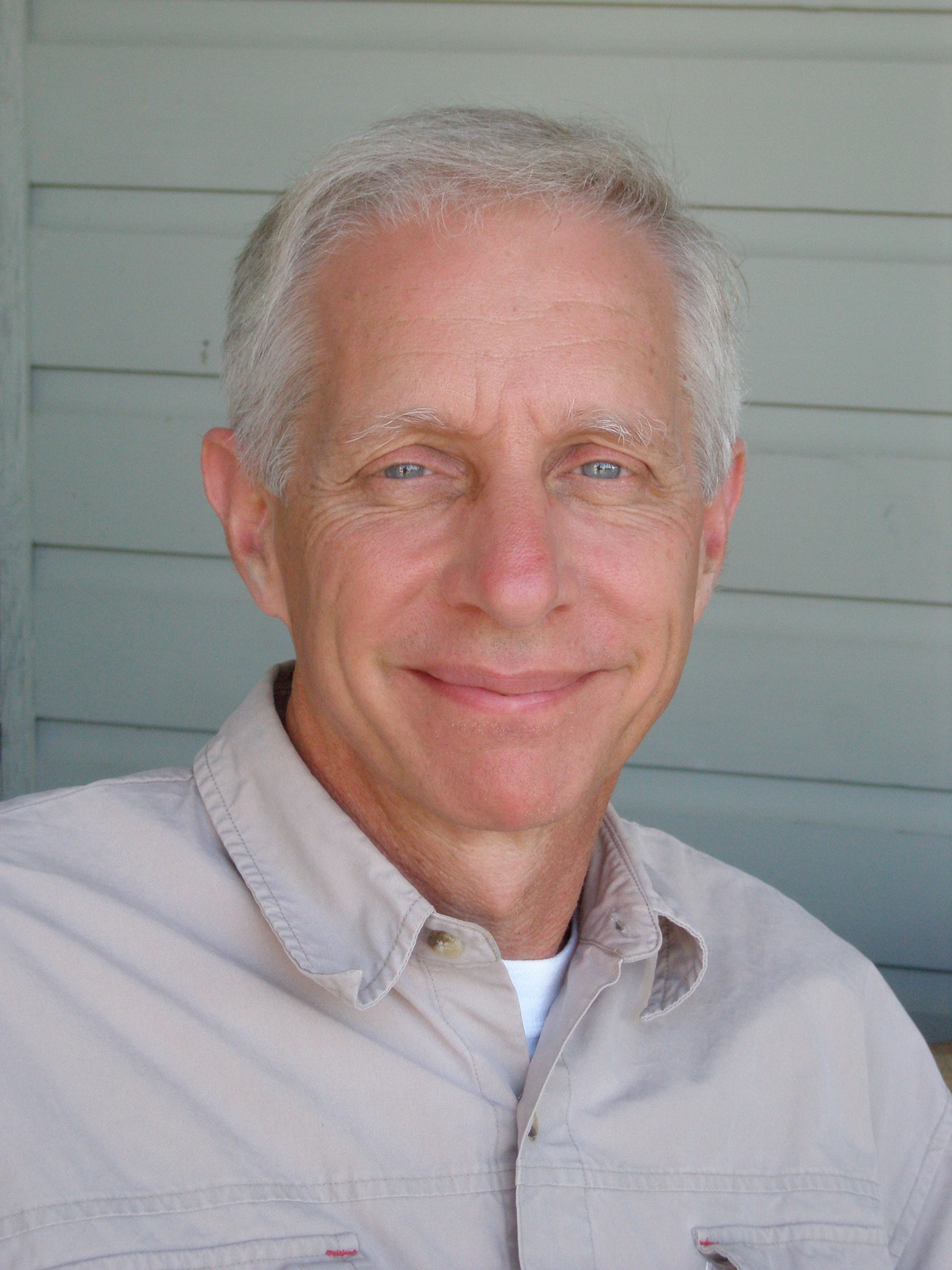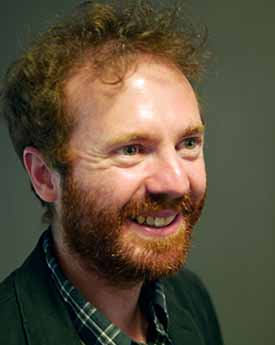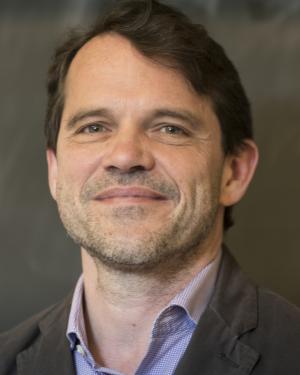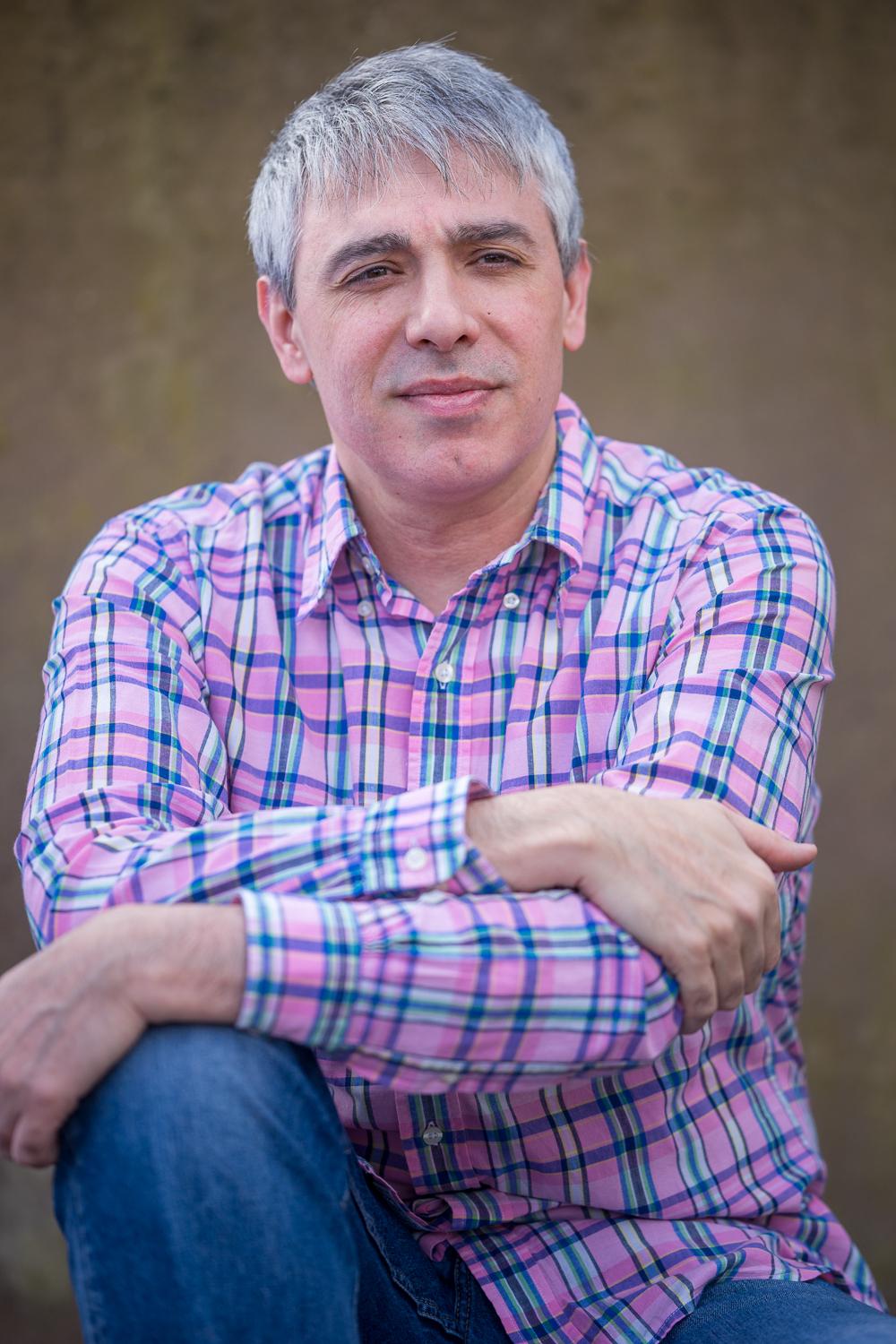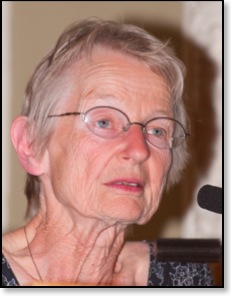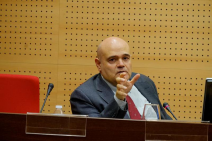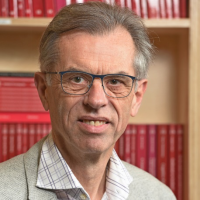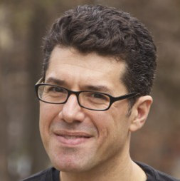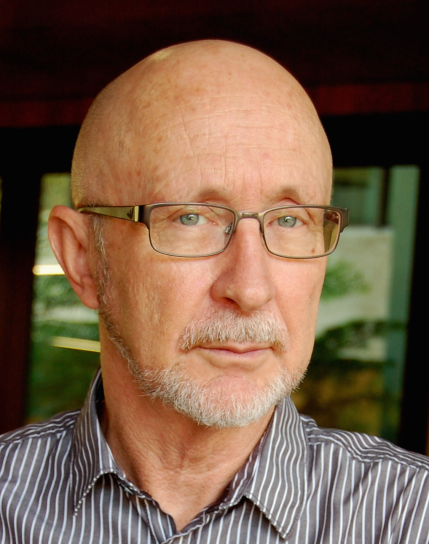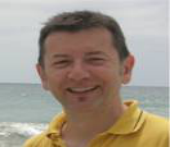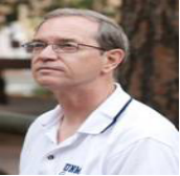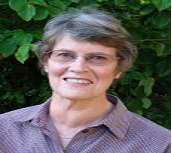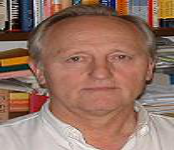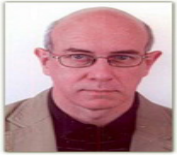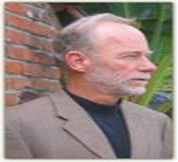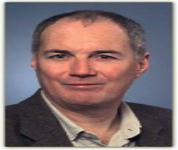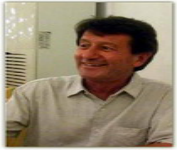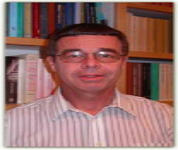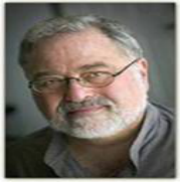Speaker
Speaker No. 33 |
CIFCL-23, 10th Apr.-21st Apr. 2023 |
Christian Lehmann |
Christian Lehmann is Professor emeritus of General and Comparative Linguistics of the University of Erfurt, Germany. He has done descriptive, historical and typological work on various languages including Latin, German, Yucatec Maya and Cabecar, always combining structural and functional approaches. His research interests and publications relate to linguistic theory and methodology of language description, grammar and grammaticography and grammaticalization. His book publications include Der Relativsatz (“The relative clause”, 1984), Thoughts on grammaticalization (3nd ed. 2015), Possession in Yucatec Maya (1998), Morphology. An international handbook on inflection and word formation (with coeditors, 2 vols., 2000/2004). Lehmann is currently working on Cabecar grammar and on reference. Most of his work can be seen and downloaded from https://www.christianlehmann.eu. Email: Christian.Lehmann ☯ Uni-Erfurt.De |
Speaker No. 32 |
CIFCL-23, 30th Jan.-10th Feb. 2023 |
Mark Johnson |
Mark Johnson is the Philip H. Knight Professor of Liberal Arts and Sciences, Emeritus, in the Department of Philosophy at the University of Oregon. His research has focused on the philosophical implications of the role of human embodiment in meaning, conceptualization, reasoning, values, and knowing, especially from the perspective of embodied cognitive science and pragmatist philosophy. His recent work develops a naturalistic account of mind and knowing. He is co-author, with George Lakoff, of Metaphors We Live By (1980) and Philosophy in the Flesh (1999) and author of The Body in the Mind: The Bodily Basis of Meaning, Imagination, and Reason (1987), Moral Imagination: Implications of Cognitive Science for Ethics (1993), The Meaning of the Body: Aesthetics of Human Understanding (2007), Morality for Humans: Ethical Understanding from the Perspective of Cognitive Science (2014), Embodied Mind, Meaning, and Reason (2017), Aesthetics of Meaning and Thought (2018), and Out of the Cave: A Natural Philosophy of Mind and Knowing (2021). Email: markj@uoregon.edu |
| Speaker No.31 | CIFCL-22, 28th Nov.-9th Dec. 2022 |
Christopher Hart |
Christopher Hart is Professor of Linguistics at Lancaster University. His research uses cognitive linguistics to critically analyse the links between language (as well as other forms of semiosis), cognition and social action in contexts of political communication. Much of his research has been dedicated to developing a paradigm of Cognitive Critical Discourse Analysis (Cognitive CDA). He is author/editor of several books including Critical Discourse Analysis and Cognitive Science: New Perspectives on Immigration Discourse (Palgrave 2010), Discourse, Grammar and Ideology: Functional and Cognitive Perspectives(Bloomsbury 2014) and Cognitive Linguistic Approaches to Text and Discourse: From Poetics to Politics (EUP 2019). He has published articles in international journals including Cognitive Linguistics, Discourse & Society, Discourse & Communication, Critical Discourse Studies, Journal of Pragmatics and Journal of Language and Politics. Email: c.hart@lancaster.ac.uk |
| Speaker No. 30 | CIFCL-21, 25th Oct-5th Nov., 2021 |
Rob Rupert |
Rob Rupert is Professor of Philosophy at the University of Colorado at Boulder, a fellow of UC-Boulder’s Institute of Cognitive Science, and a core faculty member of UC-Boulder's Committee for the History and Philosophy of Science. He has published on various topics in philosophy of cognitive science, philosophy of mind, philosophy of science, metaphysics, epistemology, and philosophy of language. His most influential works address questions concerning situated cognition (“Challenges to the Hypothesis of Extended Mind,” Journal of Philosophy, 2004; Cognitive Systems and the Extended Mind, Oxford University Press, 2009), group minds (“Minding One's Cognitive Systems: When Does a Group of Minds Constitute a Single Cognitive Unit?”), and mental representation (“The Best Test Theory of Extension: First Principle(s),” Mind & Language1999; “Coining Terms in the Language of Thought,” Journal of Philosophy, 2001; “Representation and Mental Representation,” Philosophical Explorations, 2018). He is Regular Visiting Professor at University of Edinburgh and was previously Professorial Fellow there. He has also held visiting positions at the Australian National University, Ruhr-Universität Bochum, New York University, Macquarie University, and Western University, Ontario, among other institutions. He has been awarded a National Endowment for the Humanities Fellowship for College Teachers. He currently serves as Co-Editor-in-Chief of the British Journal for the Philosophy of Science. Email: robert.rupert@colorado.edu |
| Speaker No. 29 | CIFCL-21, 11st-22nd Oct., 2021 |
Michael Barlow |
Michael Barlow received his PhD in Linguistics from Stanford University. He is currently Associate Professor in Applied Language Studies at the University of Auckland in New Zealand. Dr. Barlow has written books and articles broadly based on usage-based approaches to language and his research relies on corpus analysis to understand the nature of grammatical patterning and the relation of that patterning to cognitive representations. He has created several text analysis programs including concordancers MonoConc and ParaConc and a collocation extraction program, Collocate. A recently developed program, WordSkew, is designed to apply corpus analysis techniques while at the same time taking note of the structure of texts. Email: mi.barlow@auckland.ac.nz |
| Speaker No. 28 | CIFCL-20, 6th-17th Sep., 2021 |
Dr. Petar Milin |
Dr. Petar Milin is a psychologist who has published extensively in the domain of language learning and language processing. He co-leads on a ₤1M grant that aims to a step-change in understanding language and, in particular, language learning. As one of the principal developers of the Naive Discrimination Learning framework, he is experienced in advanced statistical and the computational modelling of language. Email: P.Milin@bham.ac.uk |
Dagmar Divjak |
Dagmar Divjak is a Professorial Research Fellow at the University of Birmingham where she holds a Chair in Cognitive Linguistics and Language Cognition. She is Editor-in-Chief of the journal Cognitive Linguistics and has co-edited De Gruyter’s Handbook of Cognitive Linguistics. Her main research interests are in understanding the relation between our general and individual cognitive abilities and the patterns and structures we see in language. She has worked extensively on charting what language has to offer the learner in their quest for the meaning of words and constructions and her first monograph Clustering the Lexicon was published in the series Cognitive Linguistics Research.Currently, she is working on putting usage-based theories on a cognitively sounder footing by exploring which distributional patterns learners discover in data, given existing constraints on memory and attention. A monograph on this topic “Frequency in Language: Memory, Attention and Learning” is forthcoming with Cambridge University Press. For more details, please visit her web page at https://www.sheffield.ac.uk/russian/staff/profiles/divjakd/. |
| Speaker No. 27 | CIFCL-20, 10th-21st May., 2021 |
Elizabeth C. Traugott |
Elizabeth C. Traugott, Professor Emerita of Linguistics and English (Ph.D., University of California at Berkeley, 1964) has done research in historical syntax, semantics, and pragmatics, lexicalization, socio-historical linguistics, and linguistics and literature. Her current research focuses on ways i) build on the complementarity of work on diachronic construction grammar and grammaticalization, ii) bring diachronic construction grammar to bear on accounts of micro-changes, including the development of metatextual pragmatic markers in English. Publications include A History of English Syntax (1972), Linguistics for Students of Literature (1980; with Mary L. Pratt), On Conditionals (1986; co-edited with Alice ter Meulen, Judith Snitzer Reilly, and Charles A. Ferguson), Approaches to Grammaticalization (1991; co-edited with Bernd Heine, 2 volumes), Grammaticalization (1993, 2nd much revised ed. 2003; with Paul Hopper), Regularity in Semantic Change (2002; with Richard B. Dasher), Lexicalization and Language Change (2005; with Laurel J. Brinton), Gradience, Gradualness and Grammaticalization (2010; co-edited with Graeme Trousdale), The Oxford Handbook of the History of English (2012; co-edited with Terttu Nevalainen), and Constructionalization and Constructional Changes (2013; with Graeme Trousdale). |
Speaker No. 25-26 |
CIFCL-19, 4th-8th Nov., 2019 |
Martin Hilpert |
Martin Hilpert is Professor of English Linguistics at the University of Neuchâtel. He holds a PhD from Rice University and he did postdoctoral research at the International Computer Science Institute in Berkeley and at the Freiburg Institute for Advanced Studies. He is interested in cognitive linguistics, language change, construction grammar, and corpus linguistics. He is the author of "Germanic Future Constructions" (2008, John Benjamins), "Constructional Change in English" (2013, Cambridge University Press), and "Construction Grammar and its Application to English (2014, Edinburgh University Press). He is editor of the journal "Functions of Language" and associate editor of "Cognitive Linguistics”. Email: martin.hilpert@unine.ch |
Francisco José Ruiz de Mendoza Ibáñez |
Francisco José Ruiz de Mendoza Ibáñez works on Cognitive Linguistics, Construction Grammar(s), inferential pragmatics and functional approaches to language. He has coordinated funded work on figurative language from scholars across Europe, many of them part of the Lexicom research group, which he co-founded (www.lexicom.es). He has published extensively on metaphor, metonymy, illocution, and has created, with professor Ricardo Mairal, the Lexical Constructional Model. He has edited or co-edited several books: Cognitive Linguistics: Internal Dynamics and Interdisciplinary Interaction (2005, Mouton),Cognitive Linguistics: Current Applications and Future Perspectives (2006, Mouton), Defining Metonymy in Cognitive Linguistics: Towards a Consensus View (2011, John Benjamins),Theory and Practice in Functional-Cognitive Space (2014, John Benjamins),The Functional Perspective on Language and Discourse: Applications and Implications (2014, John Benjamins). He has authored or coauthored several books on linguistic theory, the most recent one being Cognitive Modeling. A Linguistic Perspective (2014, John Benjamins), which received the 2015 AESLA Research Award for experienced researchers. He serves or has served on the editorial and scientific boards of journals such as Miscelánea, Jezikoslovlje, ITL-International Journal of Applied Linguistics, Revue Romane, and Cognitive Linguistics. Former editor of the Spanish Journal of Applied Linguistics, he has been the editor of the Review of Cognitive Linguistics, and co-editor of Applications of Cognitive Linguistics (Mouton de Gruyter) since their inception. Since January 2012 he has been co-editor of the Bibliography of Metaphor and Metonymy (John Benjamins). He also serves on the editorial board of book series, such as Human Cognitive Processing (John Benjamins, since 2010), Metaphor in Language, Cognition, and Communication (John Benjamins, since 2010), and Figurative Thought and Language (John Benjamins, since 2015). He has been the head organizer of two major international conferences: 8th International Cognitive Linguistics Conference (University of La Rioja, 2003); 44th International Meeting of the Societas Linguistica Europaea (University of La Rioja, 2011) and several other conferences and seminars. |
Speaker No. 23-24 |
CIFCL-18, 8th-12th Oct., 2018 |
Arie verhagen |
Arie Verhagen(PhD 1986) is presently professor of Language, Culture, and Cognition at Leiden University (The Netherlands), and Academic Director of the Honors Program of the Faculty of Arts in Leiden. He previously held positions at the Free University in Amsterdam and the University of Utrecht. From 1996 till 2004, he served as editor-in-chief of the journal Cognitive Linguistics. His grammatical work includes studies on word order, passive, causative, connectives,wh-questions, complementation, and other construction types. With his 2005 monograph Constructions of Intersubjectivity. Discourse, Syntax, and Cognition(Oxford University Press), he contributed to the so-called ‘social turn’ in cognitive linguistics. He has been a (co)supervisor in a number of externally funded interdisciplinary projects, on topics such as comparing cultural evolution in human language and bird song, computational modeling of language acquisition and language change, stylistics and rhetoric in literature and non-fiction, and dialogues in past and present communication. His research is framed in a (radically) usage-based approach (seeGeeraerts 2016for a recent overview), and focuses especially on the connection between grammar, discourse, and the highly developed human ability to understand other minds, as a basis for cooperation; a recent result is the volume Viewpoint and the Fabric of Meaning(De Gruyter, 2016, co-edited with Barbara Dancygier and Wei-lun Lu). Website:http://www.arieverhagen.nl/ Email: A.Verhagen@hum.leidenuniv.nl |
Stefan Th. Gries |
Stefan Th. Gries earned his M.A. and Ph.D. degrees at the University of Hamburg in 1998 and 2000 and is currently (Full) Professor of Linguistics in the Department of Linguistics at the University of California, Santa Barbara (UCSB) as well as a part-time (Full/W3-) Professor of Corpus Linguistics (Quantitative Methods) of the Justus-Liebig-Universität Giessen. Methodologically, Gries is a quantitative corpus linguist at the intersection of corpus linguistics, cognitive linguistics, and computational linguistics, who uses statistical methods to investigate linguistic phenomena (corpus-linguistically and experimentally) and test and develop corpus-linguistic and statistical methods. Theoretically, he is a cognitively-oriented usage-based linguist. Gries has authored three books, co-edited seven volumes, and has (co-)authored dozens of articles, many in the leading peer-reviewed journals of his fields (Cognitive Linguistics and International Journal of Corpus Linguistics). He is general editor of the international peer-reviewed journal Corpus Linguistics and Linguistic Theory, co-editor-in-chief of the Journal of Research Design and Statistics in Linguistics and Communication, associate editor of Cognitive Linguistic Studies, and performs editorial functions for about a dozen other international peer-reviewed journals and book series. E-mail:stgries@linguistics.ucsb.edu |
Speaker No. 22 |
CIFCL-17, 25th-29thDec., 2017 |
Jeffrey M. Zacks |
Jeffrey M. Zacks is Professor and Associate Chair of Psychological & Brain Sciences, and Professor of Radiology, at Washington University in Saint Louis. He received his bachelor’s degree in Cognitive Science from Yale University and his PhD in Cognitive Psychology from Stanford University in 1999. His research has been funded by the Defense Advanced Research Projects Agency, the National Science Foundation, the National Institutes of Health, and the James S. McDonnell Foundation. He has served as Associate Editor of the journals Cognition, Cognitive Research: Principles & Implications, and Collabra, and as Chair of the governing board of the Psychonomic Society, the leading association of experimental psychologists. He is the recipient of scientific awards from the American Psychological Association and the American Psychological Foundation, and is a fellow of the American Association for the Advancement of Science, the Association for Psychological Science, the Midwest Psychological Association, and the Society of Experimental Psychologists. Zacks is the author of two books, Flicker: Your Brain on Movies and Event Cognition(with G.A. Radvansky), and co-editor of Understanding Events(with Thomas F. Shipley). He has published more than 80 journal articles and also has written for Salon,Aeon, and The New York Times. E-mail:jzacks@wustl.edu |
Speaker No. 21 |
CIFCL-16, 28thNov-2ndDec., 2016 |
Cliff Goddard |
Cliff Goddard is Professor of Linguistics at Griffith University, Australia. He is a leading proponent of the Natural Semantic Metalanguage (NSM) approach to language, meaning, and culture, originated by Anna Wierzbicka. He has published extensively on topics in descriptive and theoretical semantics, ethnopragmatics, language description, and linguistic typology. His major publications include the edited volumes Ethnopragmatics(2006, Mouton de Gruyter),Cross-Linguistic Semantics(2008, Benjamins), and“Happiness” and “Pain” Across Languages and Cultures, co-edited with Zhengdao Ye (in press, Benjamins). He is the author of two textbooks Semantic Analysis(2nd ed., 2011, OUP) and The Languages of East and Southeast Asia (2005, OUP). His most recent book is Words and Meanings: Lexical Semantics Across Domains, Languages, and Cultures, co-authored with Anna Wierzbicka (2014, OUP). Professor Goddard is a Fellow of the Australian Academy of the Humanities. Email: < c.goddard@griffith.edu.au> |
Speaker No. 20 |
CIFCL-15, 23rd-27thMay, 2016 |
Nikolas Gisborne |
Nikolas Gisborne is the Professor of Linguistics at the University of Edinburgh, where he has worked since 2002. Before moving to Edinburgh, he taught at the University of Hong Kong and the University of Cambridge, having graduated with a PhD in Linguistics from University College London. Gisborne works on syntax and semantics, particularly event structure and predication, and on language change. He works with a network-based theory of language and cognitive structure, and is interested in the theoretical question of how to model a formal theory of language so that it is cognitively and psychologically plausible. E-mail:n.gisborne@ed.ac.uk |
Speaker No. 19 |
CIFCL-14, 13th-17thOct., 2014 |
Phillip Wolff |
Phillip Wolff received his PhD from Northwestern University and is currently Associate Professor of Psychology and Interim Director of the Program in Linguistics. Dr. Wolff’s research focuses on the representation of relational concepts and on the language-thought interface. He has conducted research on the semantics of verbs and prepositions and their relationship to the nonlinguistic conceptual system, with special emphasis on the large-scale structure of the verb lexicon and on the role of forces in the representation of causal expressions. Dr. Wolff’s research involves a range of methodologies, including those from psychophysics, computational linguistics, computer visualization, and cross-linguistic comparisons. E-mail:pwolff@emory.edu |
Speaker No. 18 |
CIFCL-13, 5th-9thNov., 2013 |
Ronald Langacker |
Ronald W. Langacker received his Ph.D. in Linguistics from the University of Illinois in 1966. He was a professor in the Department of Linguistics at the University of California, San Diego from that time until his retirement in 2003. During this period, 31 graduate students received their Ph.D. under his supervision, and 48 Visiting Scholars spent time at UCSD under his sponsorship. He now holds the position of Research Professor. After his training and early research in generative syntactic theory, Langacker largely devoted the first ten years of his professional career to the comparative grammar and historical reconstruction of the Uto-Aztecan family of Native American languages. In 1976, deciding that a radically different theoretical approach to language was necessary; he began developing the framework that has come to be known as “cognitive grammar”. A fundamental statement of that framework, the two-volume work titled Foundations of Cognitive Grammar, was published in 1987 and 1991. Through the years, cognitive grammar has continued to be refined, further articulated, and applied to a progressively wider range of languages and phenomena. An interim summary, Cognitive Grammar: A Basic Introduction, appeared in 2008. Langacker is a founding member of the International Cognitive Linguistics Association and served as its president from 1997-99. He was chair of the organizing committee for the 2001 International Cognitive Linguistics Conference. He was a co-editor (and is now an honorary editor) of the monograph series Cognitive Linguistics Research and serves as a member of numerous editorial and advisory boards. He has published other books and many articles dealing with a broad array of issues in cognitive linguistics. He is known as one of the three founding fathers of Cognitive Linguistics. E-mail:rlangacker@ucsd.edu |
Speaker No. 16-17 |
CIFCL-12, 27th-31stMay, 2013 |
Alan Cienki |
Alan Cienki is Associate Professor in the English section of the Department of Language and Communication at the Vrije Universiteit (VU) in Amsterdam, Netherlands. One of his major research interests is how speech and gesture reflect processes of conceptualization. He is co-editor of the volumes Conceptual and Discourse Factors in Linguistic Structure(2001) and Metaphor and Gesture(2008). His education in the USA included receiving a BA from Hamilton College in Russian Studies, and an MA and PhD in Slavic linguistics from Brown University. He then taught at Emory University (USA) in the Dept. of Russian and East Asian Languages and Cultures. At Emory University he co-founded and later directed the Program in Linguistics, and also served as the Director of the PhD program in Culture, History, and Theory of the interdisciplinary Graduate Institute of the Liberal Arts. He is Chair of the international Association for Researching and Applying Metaphor (RaAM), Associate Editor of the journal Cognitive Linguistics, and founder of the Amsterdam Gesture Center.http://www.let.vu.nl/staf/a.cienki E-mail:a.cienki@vu.nl |
Stefan Th. Gries |
Stefan Th. Gries earned his M.A. and Ph.D. degrees at the University of Hamburg in 1998 and 2000 and is currently (Full) Professor of Linguistics in the Department of Linguistics at the University of California, Santa Barbara (UCSB) and Honorary Liebig-Professor of the Justus-Liebig-Universität Giessen. Methodologically, Gries is a quantitative corpus linguist at the intersection of corpus linguistics, cognitive linguistics, and computational linguistics, who uses statistical methods to investigate linguistic phenomena (corpus-linguistically and experimentally) and test and develop corpus-linguistic and statistical methods. Theoretically, he is a cognitively-oriented usage-based linguist. Gries has authored three books, co-edited six volumes, and has(co-)authored articles in the leading peer-reviewed journals of his fields (Cognitive Linguistics and International Journal of Corpus Linguistics) and many other peer-reviewed journals. He is the founding editor-in-chief of the international peer-reviewed journal Corpus Linguistics and Linguistic Theory, associate editor of Cognitive Linguistics, and performs editorial functions for many international peer-reviewed journals and book series. E-mail:stgries@linguistics.ucsb.edu |
Speaker No. 15 |
CIFCL-11, Oct., 2012 |
Sherman Wilcox |
Sherman Wilcox is Professor of Linguistics at the University of New Mexico. Dr. Wilcox specializes in the relation between gesture and language, the evolution of language, cognitive approaches to sign linguistics, and interpreting theory. His research includes studies of American Sign Language, Catalan Sign Language, and Italian Sign Language, and Saudi Sign Language. He is currently writing a book,Setting Language in Motion, to be published by Oxford University Press. E-mail:wilcox@unm.edu |
Speaker No. 14 |
CIFCL-10, June, 2012 |
Jürgen Bohnemeyer |
Jürgen Bohnemeyer is Associate Professor of Linguistics at the State University of New York at Buffalo. He studied linguistics at Bielefeld University in Germany and Tilburg University in the Netherlands, where he obtained his doctorate in 1998. He was first a postdoctoral researcher and then a senior research fellow at the Max Planck Institute for Psycholinguistics until he took up a position as Assistant Professor at the University at Buffalo in 2003. There he was tenured in 2008. Bohnemeyer specializes in semantic typology, the crosslinguistic study of semantic categorization. Bohnemeyer’s work focuses on the semantic typology of representations of space, time, and events. E-mail:jb77@buffalo.edu
|
Speaker No. 12-13 |
CIFCL-9, 2011 |
Laura A Janda |
Laura A. Janda received a bachelor’s degree in Russian at Princeton U in 1979, followed by a PhD degree in Slavic linguistics in 1984. Her education also includes applied linguistics (certification as an ESL instructor), numerous specialized language-training courses in various Slavic countries, and, more recently, statistics. She has been employed on the faculties of UCLA, the University of Rochester, the University of North Carolina (Chapel Hill), and the University of Tromsø(Norway). Janda is the recipient of numerous grants and awards, most notably from the American Council of Learned Societies, the US Dept of Education, the National Science Foundation, the Norwegian Academy of Sciences, and the Norwegian Research Council. She has over one hundred publications addressing a variety of linguistic issues pertaining to Slavic languages and cognitive linguistics. E-mail:laura.janda@uit.no
|
Ewa Dabrowska |
Ewa Dabrowska received her PhD from the University of Gdańsk in 1995. Since then she has taught at the universities of Gdańsk, Glasgow, Sussex, Sheffield, and, since 2009, Northumbria. She is the editor of Cognitive Linguistics, member of the Editorial Board of Trends in Language Acquisition Research, Vice President of the UK Cognitive Linguistics Association, and a member of the Governing Board of theInternational Cognitive Linguistics Association and the AHRC Peer Review College. Her research covers three main areas: cognitive linguistics, psycholinguistics, and language acquisition. |
Speaker No. 9-11 |
CIFCL-8, 2010 |
William Croft |
William Croft received his Ph.D. from Stanford University in 1986. He is currently Professor of Linguistics at the University of New Mexico. Croft’s areas of specialty are typology, semantics, cognitive linguistics, construction grammar and evolutionary models of language change. Croft has held visiting positions at the Max Planck Institute for Psycholinguistics, the Max Planck Institute for Evolutionary Anthropology and the Center for Advanced Study in the Behavioral Sciences. E-mail:wcroft@unm.edu
|
Melissa Bowerman |
Melissa Bowerman was Senior Scientist (emeritus) at the Max Planck Institute for Psycholinguistics (Nijmegen, The Netherlands) and adjunct Professor of Linguistics (emer.) at the Free University of Amsterdam. She received her B.A. in psychology from Stanford University and her M.A. and Ph.D. in social psychology (psycholinguistics) from Harvard University. Her research focuses on first language acquisition from a cross-linguistic perspective and its relationship to linguistic typology, and on the interface between semantics and cognition in adult language and in the developing child. Some more specific topics include spatial semantics, argument structure, and event representation. |
Zoltán Kövecses |
Zoltán Kövecses is Professor of Linguistics in the Department of American Studies at Eötvös Loránd University, Budapest. He is currently working on the language and conceptualization of emotions, cross-cultural variation in metaphor, metaphor, and metonymy in discourse, and the issue of the relationship between language, mind, and culture from a cognitive linguistic perspective. E-mail:zkovecses@ludens.elte.hu
|
Speaker No. 7-8 |
CIFCL-7, 2009 |
Dirk Geeraerts |
Dirk Geeraerts(born 1955, PhD 1981) holds the chair of theoretical linguistics at the University of Leuven, Belgium. His main research interests involve the overlapping fields of lexical semantics, lexicology, and lexicography, with a theoretical focus on cognitive semantics. His involvement with cognitive linguistics dates from the 1980s, when in his PhD thesis he was one of the first in Europe to explore the possibilities of a prototype-theoretical model of categorization. As the founder of the journal Cognitive Linguistics and as the editor (with Hubert Cuyckens) of theHandbook of Cognitive Linguistics, he played an instrumental role in the international expansion of cognitive linguistics. E-mail:dirk.geeraerts@arts.kuleuven.be
|
Mark Turner |
Mark Turner is a cognitive scientist,linguist, andauthor. He is Institute Professor and Professor of Cognitive Science at Case Western Reserve University, where he was for two years Dean of the College of Arts and Sciences. He was previously Distinguished University Professor at the University of Marylandand Associate Director of the Center for Advanced Study in the Behavioral Sciences. Turner has been a fellow of theInstitute for Advanced Study, theJohn Simon Guggenheim Memorial Foundation, the Center for Advanced Study in the Behavioral Sciences, the National Humanities Center, theNational Endowment for the Humanities, and the Institute of Advanced Study at Durham University. The work ofGilles Fauconnierand Turner founded the theory ofconceptual blending. E-mail:mark.turner@case.edu
|
Speaker No. 6 |
CIFCL-6, 2008 |
Chris Sinha |
Chris Sinha is Professor of Psychology of Language. He gained his BA in Developmental Psychology at the University of Sussex and his doctorate at the University of Utrecht. Before moving to Portsmouth in September 2002, Chris taught in departments of Education, Psychology, and Language and Communication, in Britain, the Netherlands, Denmark and India. He has published widely in many disciplines, including anthropology, linguistics, education, evolutionary biology, connection science, as well as developmental and cultural psychology. E-mail:Chris.Sinha@port.ac.uk |
Speaker No. 5 |
CIFCL-5, 2008 |
Gilles Fauconnier |
Gilles Fauconnier (born on August 19, 1944) is a French linguist, researcher in cognitive science, and author, currently working in the U.S. He is a professor at the University of California, San Diego in the Department of Cognitive Science. His work with Mark Turner founded the theory of conceptual blending. E-mail:faucon@cogsci.ucsd.edu
|
Speaker No. 4 |
CIFCL-4, 2007 |
Leonard Talmy |
Leonard Talmy is a professor of linguistics at the University at Buffalo State University of New York. He is known for his pioneering work in cognitive linguistics, more specifically, in the relationship between semantic and formal linguistic structures and the connections between semantic typologies and universals. He also specializes in the study ofYiddishandNative American linguistics. He is known as one of the three founding fathers of Cognitive Linguistics. E-mail:talmy@buffalo.edu
|
Speaker No. 3 |
CIFCL-3, 2006 |
Ronald Langacker |
Ronald W. Langacker received his Ph.D. in Linguistics from the University of Illinois in 1966. He was a professor in the Department of Linguistics at the University of California, San Diego from that time until his retirement in 2003. During this period, 31 graduate students received their Ph.D. under his supervision, and 48 Visiting Scholars spent time at UCSD under his sponsorship. He now holds the position of Research Professor. After his training and early research in generative syntactic theory, Langacker largely devoted the first ten years of his professional career to the comparative grammar and historical reconstruction of the Uto-Aztecan family of Native American languages. In 1976, deciding that a radically different theoretical approach to language was necessary; he began developing the framework that has come to be known as “cognitive grammar”. A fundamental statement of that framework, the two-volume work titled Foundations of Cognitive Grammar, was published in 1987 and 1991. Through the years, cognitive grammar has continued to be refined, further articulated, and applied to a progressively wider range of languages and phenomena. An interim summary, Cognitive Grammar: A Basic Introduction, appeared in 2008. Langacker is a founding member of the International Cognitive Linguistics Association and served as its president from 1997-99. He was chair of the organizing committee for the 2001 International Cognitive Linguistics Conference. He was a co-editor (and is now an honorary editor) of the monograph series Cognitive Linguistics Research, and serves as a member of numerous editorial and advisory boards. He has published other books and many articles dealing with a broad array of issues in cognitive linguistics. He is known as one of the three founding fathers of Cognitive Linguistics. E-mail:rlangacker@ucsd.edu |
Speaker No. 2 |
CIFCL-2, 2005 |
John Taylor |
Professor of Linguistics, University of Otago, New Zealand Expertise: Phonetics and phonology, Germanic languages, Romance languages. Research: cognitive grammar, spatial relations, phonetics. John Taylor has held positions in Germany and in South Africa. Currently, he is the managing editor of Cognitive Linguistics Research (Mouton de Gruyter) and is on the editorial board of the Functions of Language (John Benjamins), and the journal Cognitive Linguistics. E-mail:john.taylor65@xtra.co.nz |
Speaker No. 1 |
CIFCL-1, April 2004 |
George Lakoff |
Professor of Linguistics, University of California at Berkeley. Research interests include Cognitive linguistics, especially the neural theory of language. Conceptual systems, conceptual metaphor, syntax-semantics-pragmatics. The application of cognitive and neural linguistics to politics, literature, philosophy, and mathematics. He is known as one of the three founding fathers of Cognitive Linguistics E-mail:lakoff@berkeley.edu |

